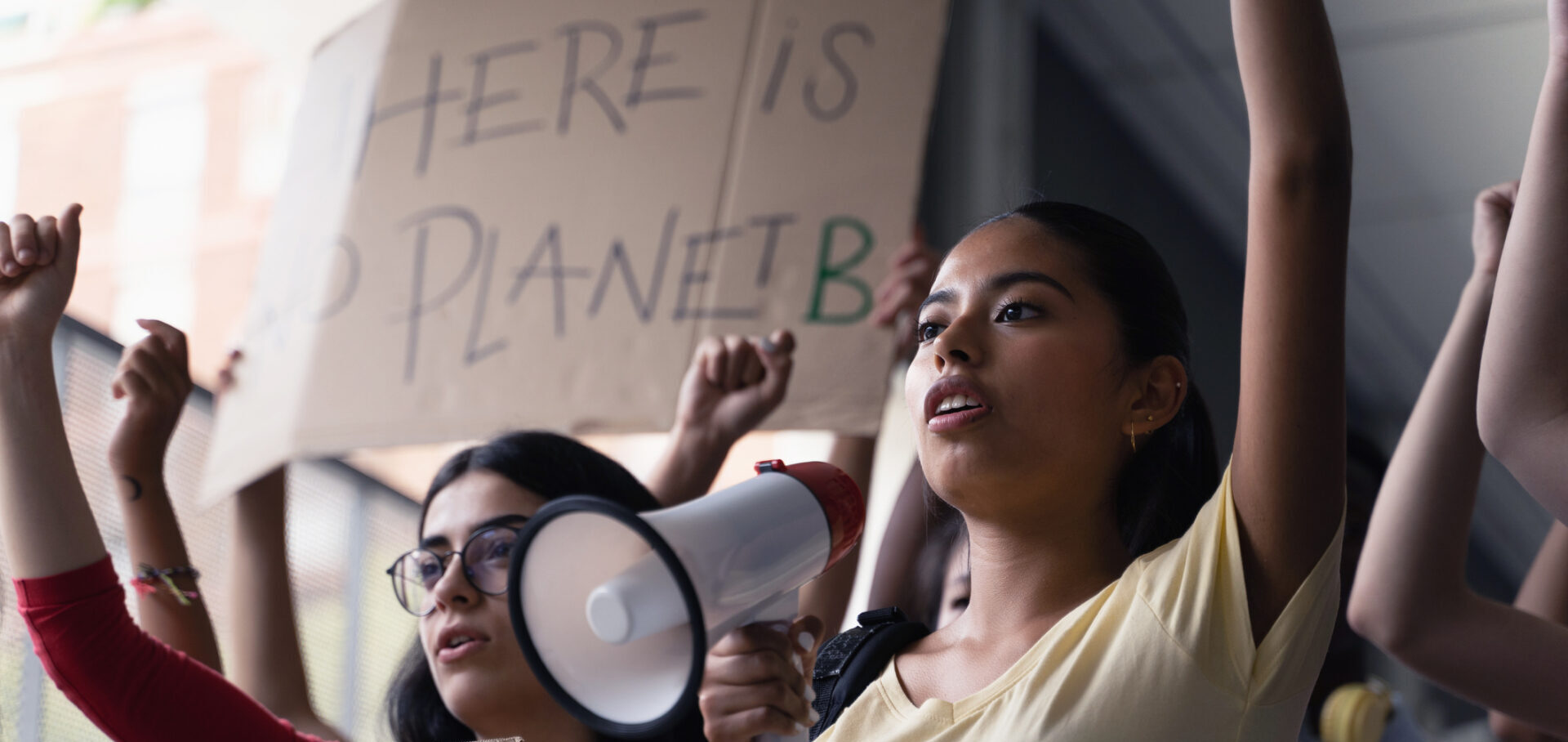Research shows that the Latine* population in the United States, along with other low-income and communities of color, is disproportionately impacted by disasters and often marginalized in government-funded mitigation and recovery efforts. Despite these barriers, Latine leaders across the United States are pioneering solutions to build community resilience and advance environmental justice. In celebration of Latine Heritage Month we are showcasing the diversity in Latine-lead solutions for disaster resilience and climate justice.
Greenway Development for Environmental Justice Communities

photo credit: Heather Craig /Survival Media Agency
Elizabeth Yeampierre is a Puerto Rican attorney whose vision for intergenerational, multicultural, and community-led organizing has inspired her leadership as Executive Director of the United Puerto Ricans Organization of Sunset Park (UPROSE). UPROSE, Brooklyn’s oldest Latino community-based organization, is an intergenerational, multiracial, nationally recognized group advancing environmental justice and equity. UPROSE environmental justice victories range from the remediation of brownfield sites to publishing a community-centered greenway development plan. Their collaborative campaigns include the establishment of Sunset Park Solar, New York City’s first cooperatively-owned community solar project. They also launched the #OurPowerPRnyc campaign, demanding a just recovery for Puerto Rico from Hurricane Maria. This campaign addresses the systemic barriers imposed by the United States through colonization and extraction, which have made recovery exceptionally challenging.

Extreme Heat Response in Environmental Justice Communities

Candace Avalos, a self-described first generation “Blacktina” with Black American and Guatemalan immigrant heritage, became the Executive Director of Verde in 2021. Verde has a long history, starting from 2005, in building environmental justice for low-income communities and communities of color in Oregon. Their wins have included developing anti-displacement programs, green leadership programs, and winning a 10-year campaign to turn a 25-acre landfill into a community designed park. Under Candace’s leadership, Verde in coalition with others, passed three historic energy justice bills in 2021. The following year, Verde passed emergency heat relief and renters’ rights to cooling and established their Cooling Portland program to install free AC units for low-income residents in response to fatal heat events the year prior.

Just Community Recovery from Disasters

Cynthia Burgos López, a Puerto Rican with a master’s in architecture and a current PhD candidate in environmental management, has a vision for just disaster recovery that has literally transformed Puerto Rico’s landscape. Cynthia co-founded and is the current executive director of La Maraña, a Puerto Rican-led participatory design and planning nonprofit. In 2017 Hurricanes Irma and Maria destroyed the island’s infrastructure, including homes and schools. Federal and state response was dismal. In response, La Maraña launched Imaginación Post Maria, a community-capacity building model for community-led just recovery. The program microfinances physical reconstruction of disaster impacted communities and builds the technical capacity of citizens to participate in a democratic, community-participatory visioning, design, planning, and reconstruction process. Through the just recovery framework, the reconstruction projects were able to identify and meet community needs that were there before the hurricane, such as access to reliable and consistent electricity, potable water, and community centers. By providing capacity-building, addressing existing inequities and needs, and bringing disaster recovery decision making power to communities, the recovery process serves as a catalyst for equity and resilience.

Migrant Workers & Response and Recovery Work

An immigrant from Peru, Daniel Castellanos’ organizing helped found Resilience Force (formerly the National Guestworker Alliance), where he is the Director of Workforce Engagement. Daniel is a recognized expert on U.S. guestworker programs, consults regularly with U.S. policymakers and has testified before Congress on effective models within the U.S. Department of Labor. Daniel arrived in New Orleans as a H-2B guestworker to work in rapid repair and recovery from Hurricane Katrina. About 10,000 H-2B guestworkers came to the area during the months following the disaster and along with Daniel, experienced exploitative working conditions, with poor wages, unsafe conditions, and little recourse due to the structure of the H-2B visa program. He organized with other guestworkers and helped found the National Guestworker Alliance (NGA), which later became Resilience Force. Resilience Force has published a Framework for Disaster Response, which highlights policy solutions for resilience workers and outlines a just transition to clean energy.

Latine-Led Climate Justice Framework

GreenLatinos led, in collaboration with 22 Latine-based organizations, the creation of the Latino Climate Justice Framework (LCJF), a long-term plan to tackle the climate crisis. Since its launch, over 1,200 organizations and leaders have shown support of the framework, highlighting its importance and impact. The updated LCJF 2.0 highlights key policy solutions that address climate displacement and migration, farm worker protection, extreme heat, and clean energy among other issues. This framework showcases not only climate justice issues important to the Latine community, but also highlights Latine-based solutions that aim to achieve equity for all.

Housing Disaster Impact Research and Policy

Dr. Carlos Martin is an expert in climate impacts, mitigation, equity, and adaptation in the housing sector, and more recently, in disaster recovery policy. He has testified multiple times before Congress, including on the National Flood Insurance Program (NFIP) and to the House Financial Services Committee highlighting the challenges low-income households face with flood insurance and advocating for reforms that make the program more accessible and affordable. He is currently the Director of the Remodeling Futures Program for the Harvard Joint Center for Housing Studies.
Celebrating Latine Heritage Month
The Latine leaders highlighted above show but a small snippet of the wide array of environmental justice, disaster resilience and equity work that is being advanced by the Latine community. In celebration of Latine Heritage Month, it is essential to recognize that the Latine community not only faces disproportionate impacts from climate disasters and environmental injustices but is also at the forefront of leading equitable solutions and building community resilience.
*The word Latine is used, rather than the binary Latino/a terminology, to be inclusive of gender identity diversity where preferred pronouns are not known. It is also used rather than Latinx, because Latine remains closer to the morphology of the Spanish language, which is one of the dominant languages among Mexican and Central American descendants.
